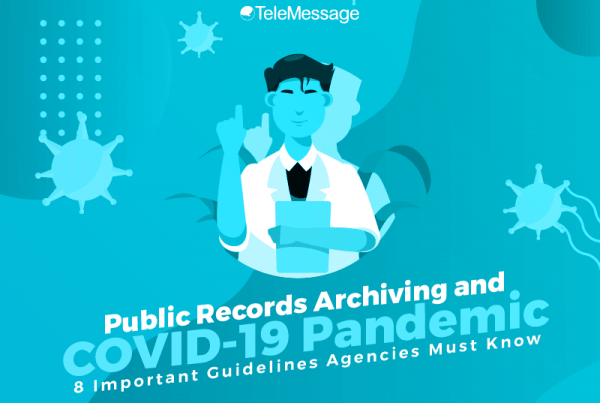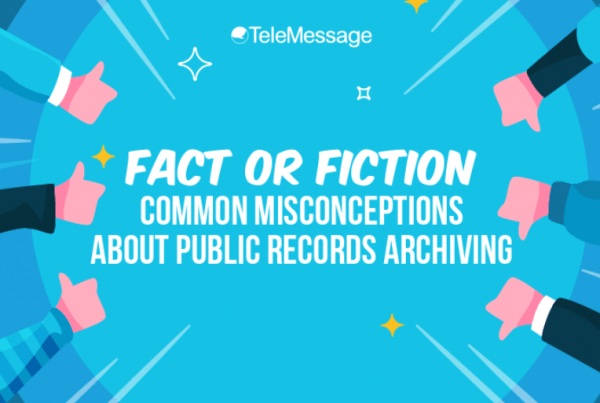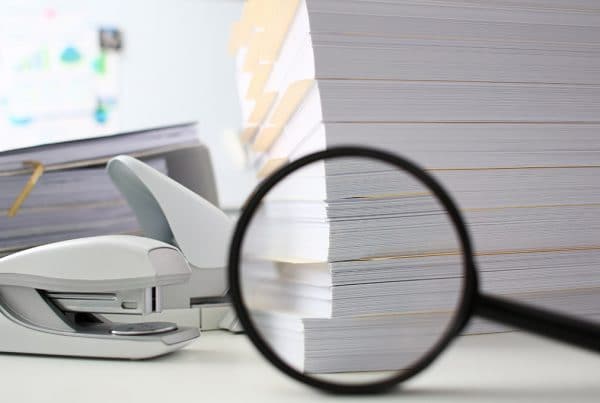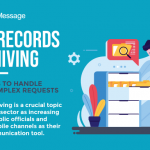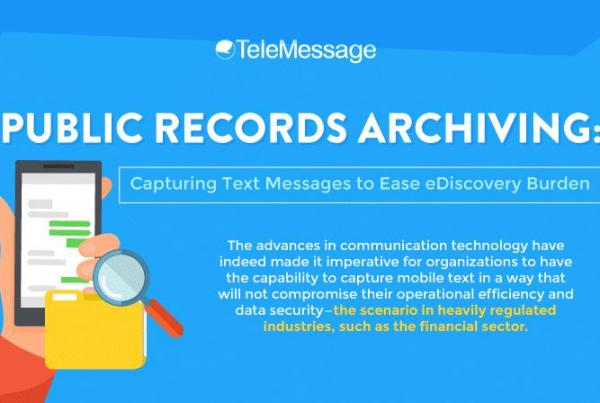Like other sectors, public agencies heavily rely on text messaging, and voice calls to communicate with their constituents and conduct business. Failure to capture and record them for FOIA request, though, often leads to negative media backlash and loss of public trust. That’s why having an efficient process for capturing and archiving mobile SMS and voice calls is so important.
Whether you’re an IT administrator in local county office or compliance head within a state agency, these are the best practices that you should implement to ensure an effective mobile SMS archiving and call recording process within your organization.
1. Know When Mobile Communications Are Considered Public Records
The government sector is regulated by sets of local, state, and federal public records archiving requirements. Before you create an organization’s mobile communication policies, it’s first important to determine the applicable rules that indicate when public officials’ and employees’ texts and voice calls are subject to open records laws.
On a Federal Level, The National Archives and Records Administration archiving requirements requires all federal agencies to manage their records, including voice calls and mobile text messages sent and received by public officials.
On a state level, you may check out our posts about Sunshine Laws and FOIA record retention requirements to learn if your state treats text messages and voice calls as public records.
2. Set Retention Timelines
Once you determine the applicable public records archiving guidelines to your organization, you must then set retention lengths for the archived mobile conversations.
These retention timelines will help you determine how long a text message or phone call should remain in your archiving system before they can be lawfully destructed. Failing to adhere to these retention timelines will expose your organization to significant disciplinary action and potential lawsuits.
According to NARA archiving requirements, federal agencies must retain public records for as long as they are needed so agencies can locate and deliver them promptly, knowing they are trustworthy and complete.
Most Sunshine Laws and FOIA statutes, on the other hand, requires all state and local governments to preserve records of electronic communications between 2-7 years, depending if the communication is of public interest in nature.
3. Enforce a Solid Text Messaging Policy
To respond to an FOIA request quickly or to ease the eDiscovery burden, you should create and enforce a detailed text messaging policy with your IT and legal/compliance team. This policy should include the following points:
- The policy should make archiving compliance mandatory for all employees who create, send and receive text messages and voice calls in their mobile devices – BYOD or corporate-owned.
- The policy should address data privacy issues — stressing that no employee using the organization’s device, equipment, or machine should expect text messaging and phone call privacy.
- Acceptable and unacceptable uses of text messaging and phone calls in the workplace.
- Indicate where the archived mobile SMS and voice calls will be stored.
- Specify any type of mobile communication exempted to retention timelines.
- List the potential consequences for non-compliance and violations.
- Evaluate and update the policy annually to keep up with changing government regulations and technology.
4. Implement an Archiving Solution That Can Store Texts and Calls in Unified Archiving Database
After text messages and phone calls are securely captured, they should be stored in a single database where your organization’s archived emails and other electronic communication data exist. By doing so, you will be able to associate any employees or public officials with archived emails and attachments, providing you with a bigger picture of their mobile communications usage, and identify conversations that violate public conduct laws or organizational policies.
TeleMessage’s Mobile Archiver is a proven choice for agencies in the public sector aiming to improve their compliance with relevant local, state, and federal public records archiving requirements. Our solution enables governmental agencies to capture mobile text, archive calls, as well as record WhatsApp chats, emails, and other mobile content – along with their attached files and metadata in real-time.
TeleMessage provides public organizations with the capability to securely deliver mobile messages to an archiving system of their choice and conduct on-demand search and retrieval of retained mobile communications with ease.
TeleMessage also integrates leading email archiving vendors, enabling government agencies to capture, retain, and supervise mobile text messages in the same way they archive and supervise their employees’ emails and documents.
Our mobile archiving products securely capture content from mobile carriers and mobile devices for a variety of ownership models (BYOD, CYOD, and employer-issued). With our multiple archiving methods, you can always find the right tools or blend for your requirements:
TeleMessage offers cross-carrier and international mobile text & calls archiving for corporate and BYOD phones. Contact us today to learn more on how we can help your organization remain compliant with public records archiving regulations.

